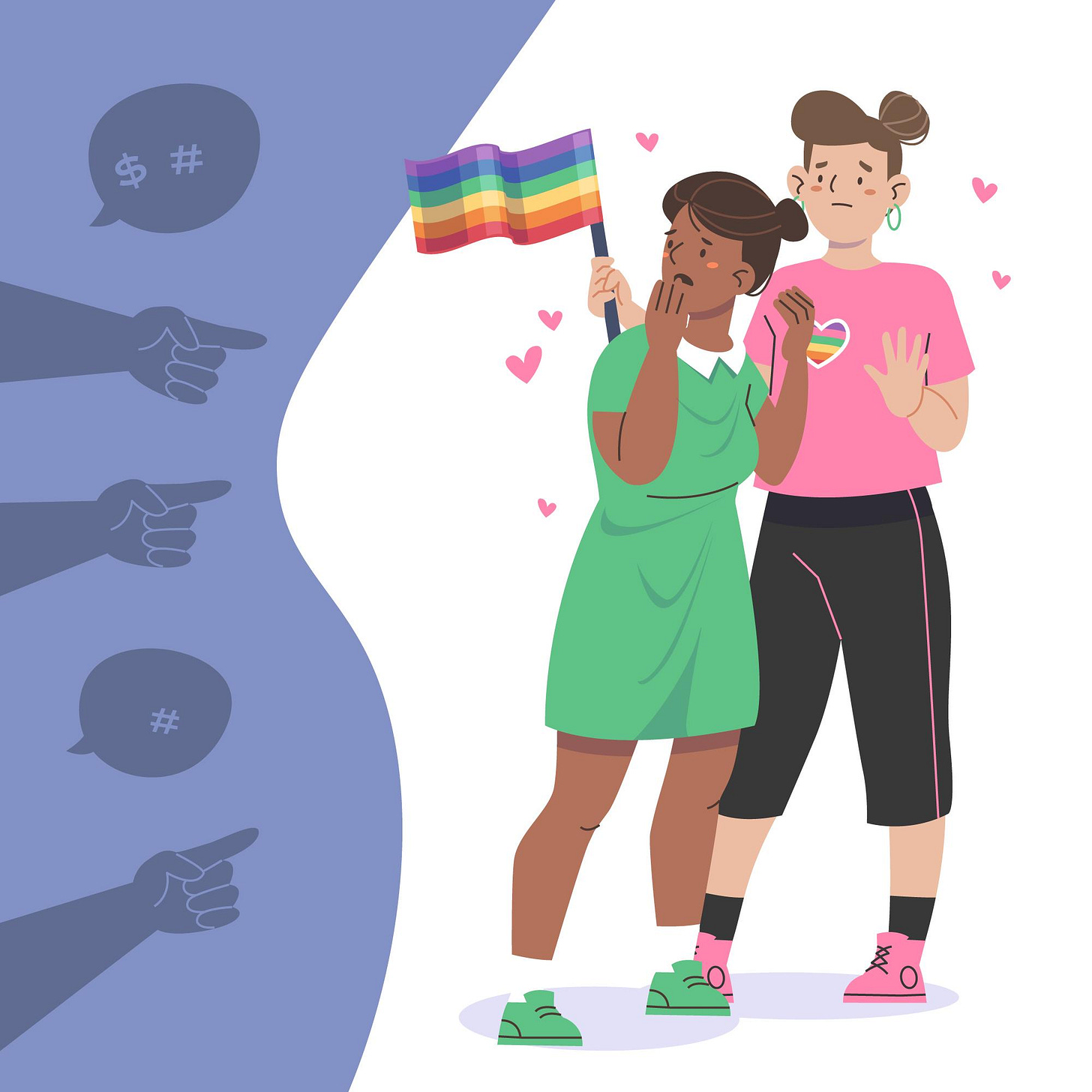Unless you’re on an elevator, take your time pitching
No editor will run your op-ed if you only give them an amuse-bouche.
Thanks for reading Pitches Get Stitches. I’m Jake. My company, Opinioned, helps leaders publish op-eds in top-tier media. I previously built and edited the opinion section at Fortune.
In this newsletter, I evaluate reader-submitted op-ed pitches from the perspective of an op-ed editor. I try to not only point out flaws, but highlight common themes I’ve noticed over my career fielding pitches and helping clients construct their own.
I would love if you submitted a pitch for me to review. It can be something you’re actively working on or hypothetical—all are welcome.
If you have a pitch, reply to this email or send it to jake@getopinioned.com. If I select it, I’ll omit any identifying information and evaluate it in this newsletter at no cost.
The long and short of it
It's become an article of faith that a pitch needs to be short. My guess is that this traces back to the pervasive concept of the elevator pitch: You should be able to explain your idea to someone before they leap out of the elevator in despair.
But not all pitches are the same. Yes, if you happen to find yourself in an elevator with Mark Cuban and you only have 30 seconds to convince him to invest, you better get to the point fast.
But even if Cuban were excited about your idea, he wouldn’t cut you a million-dollar check on the spot. He’d invite you to his office later to give him the real pitch, one that’s fully explained with all of the nuance and evidence he’d want before committing any money.
So when we’re talking about the length of a pitch, it’s important to be precise about what type of pitch we’re referring to and what that pitch aims to accomplish.
This week’s pitch was accompanied by a note at the top: “This is too long.”
But I don’t think the length is the problem. At 350 words, it’s in the sweet spot for an op-ed pitch. If the argument requires substantial context to be fully understood, then the pitcher needs to provide that context. Leaving it out could be to their detriment if the editor feels lost.
Don’t fall into the trap of thinking a long pitch is a bad pitch. Especially at the highest-level media outlets, editors are looking for you to explain your argument in detail so that they don’t have to fish down into the article itself to tease it out. You want to make it as easy for them as possible.
That said, the pitch evaluated today does feel long. That’s not because of the length, though. It’s because the author provides a lot of background context on an issue that most people already know a lot about.
I break down the pitch piece-by-piece below.
Pitch
Subject line: Being Gay in a Willfully Ignorant World
Introduction: Despite social progress in some countries, gay people generally remain a target of contempt, rejection, judgment, ridicule, stereotyping and "less-than" status. The serious emotional and psychological toll this treatment inflicts can also lead to physical violence, self-harm, and even death. The source of such negative attitudes toward same-sex orientation is rooted in religion and its archaic interpretation of human sexuality. In contrast, a growing, scientifically based body of knowledge resulting from decades of research strongly suggests biological, genetic, chromosomal and hereditary factors that either wholly determine or significantly influence sexual orientation. These scientific truths seldom make it into the modern public sphere, drowned out by centuries-old religious rhetoric and behaviors that insist, based on narrow scriptural references that fail to consider full historical and social context, that same-sex orientation is simply a voluntary, egregious affront (sin) to God, not a natural and core characteristic of one's humanity.
Substantiation: In our increasingly divisive political landscape, religion has assumed a growing role in influencing public policy. Many of those policies target same-sex oriented citizens, resulting from political pressure placed on elected officials by their religious constituents determined to flex their collective muscle and impose their punitive moral sensibilities on their entire community, state and country. The unwillingness of our society to educate the populace on the science behind same-sex orientation allows for the continued dehumanization, demonization and false stereotyping of same-sex oriented people. The media and other influential organizations have a responsibility not only to depict same-sex oriented people as a normal segment of society but also to debunk the religious myths that form the attitudes that continue to inflict emotional and physical harm on those of whom same-sex orientation is core to who they are.
Qualifications: I have served in various churches my entire life (Methodist, Baptist, non-denominational), as well as having been an astute observer of Christian (and non-Christian) behavior, and I have witnessed an obstinate, stubborn determination among the Christian community to perpetuate the belief that same-sex orientation is an unnatural state of being, a clear sin, and incompatible with the Christian faith or any pursuit of righteousness.
Stitches
Subject line: Being Gay in a Willfully Ignorant World
The headline is fairly unclear, given that person pitching the piece is not gay. That isn’t to say they can’t write about this topic, but that they should be careful about how they represent themselves in the headline.
The other issue with the subject line—and this becomes more apparent as the pitch proceeds—is that the concept of a world ignorant of gay people is not new. This already makes me concerned that the rest of the argument won’t be unique—leaving a bad initial impression.
Introduction: Despite social progress in some countries, gay people generally remain a target of contempt, rejection, judgment, ridicule, stereotyping and "less-than" status. The serious emotional and psychological toll this treatment inflicts can also lead to physical violence, self-harm, and even death.
Setting the scene is important, and this scene-setter is done fairly well. Though I will note that the lists are too long, which can sometimes cause an editor’s eyelids to droop. The first sentence has six items on its list, the second sentence three. It’s a lot to process.
The source of such negative attitudes toward same-sex orientation is rooted in religion and its archaic interpretation of human sexuality. In contrast, a growing, scientifically based body of knowledge resulting from decades of research strongly suggests biological, genetic, chromosomal and hereditary factors that either wholly determine or significantly influence sexual orientation.
Stating that negative attitudes about people with same-sex orientation are rooted in religion is an absolute statement, leaving no room for other possible causes of these negative attitudes. There are other reasons why gay people face discrimination. If the writer wanted to make the case that religion is really the only cause, then they’d probably have to make the entire op-ed about that, because it would be a provocative argument. But that’s not what they intend to do.
I also notice that the author only discusses gay people as the targets of unfair treatment. In recent years, those with same-sex preference have increasingly identified themselves within the larger LGBT movement. Why are they not mentioned?
It seems that the author has firsthand experience with discrimination toward gay people in their church community, which might explain their focus on that. But if that’s what they want to focus on, then the piece should be centered around their experience with this issue in their congregation. The pitch doesn’t go down that path, though.
Without taking a personal approach to the topic, it looks out-of-touch to discuss negative treatment of gay people without addressing the wider issue of how all LGBT people are treated. That could injure the pitcher’s ability to secure placement, because editors are seeking arguments that tackle the most pressing societal issues.
These scientific truths seldom make it into the modern public sphere, drowned out by centuries-old religious rhetoric and behaviors that insist, based on narrow scriptural references that fail to consider full historical and social context, that same-sex orientation is simply a voluntary, egregious affront (sin) to God, not a natural and core characteristic of one's humanity.
I’ve seen this argument made before, and so I continue to question whether this pitch will contain an original argument.
Substantiation: In our increasingly divisive political landscape, religion has assumed a growing role in influencing public policy. Many of those policies target same-sex oriented citizens, resulting from political pressure placed on elected officials by their religious constituents determined to flex their collective muscle and impose their punitive moral sensibilities on their entire community, state and country.
I’m still wondering where this is all going. I haven’t seen much of an argument, and we’re now halfway through the pitch.
The unwillingness of our society to educate the populace on the science behind same-sex orientation allows for the continued dehumanization, demonization and false stereotyping of same-sex oriented people. The media and other influential organizations have a responsibility not only to depict same-sex oriented people as a normal segment of society but also to debunk the religious myths that form the attitudes that continue to inflict emotional and physical harm on those of whom same-sex orientation is core to who they are.
It looks like we may have finally arrived at the argument: There are scientific reasons that explain same-sex orientation. If people understood the science behind this, it could repair their negative views toward gay people.
This sounds naive. What evidence would suggest that education would resolve negative attitudes some religious folk hold toward gay people? Has any such evidence been presented to religious people already in a systematic way that could be studied? What have their reactions to this evidence been? This raises many questions, some of which likely can’t be answered.
So we have to rely on common sense. It doesn’t stand to reason that science would persuade someone whose attitudes are rooted in their religious beliefs.
Another question: Why write about this now? Religious intolerance of same-sex relationships has been an issue for a long time. Is there any indication that religious attitudes are getting worse? If so, that might make for a compelling read. But as-is, I’m wondering why the author chose this moment to focus on this problem.
Last thing: I think the pitcher needs to be more specific about what they want the media and other influential organizations to do. Debunking religious myths makes sense, but how should that be accomplished? What are the specific actions that need to be taken to ensure religious mythology doesn’t negatively impact gay people? Answering these questions would offer the level of detail an editor looks for when evaluating a pitch.
Qualifications: I have served in various churches my entire life (Methodist, Baptist, non-denominational), as well as having been an astute observer of Christian (and non-Christian) behavior, and I have witnessed an obstinate, stubborn determination among the Christian community to perpetuate the belief that same-sex orientation is an unnatural state of being, a clear sin, and incompatible with the Christian faith or any pursuit of righteousness.
This explains more why the author wrote this pitch, and helps me make a recommendation.
I understand that the author wants to bring attention to the problem of churches rejecting people with same-sex preferences. But this is an argument that’s been made many times. They haven’t presented anything new.
What might be new is if the author could dig into their own experience and find an individual story that hasn’t yet been explored within the overall issue of religious discrimination against same-sex people. If they could point to something that happened in their own experience at church, where some aspect of discrimination emerged that hasn’t been explored meaningfully in the media, they could focus on that.
This is the only way in if you want to write about a well-covered topic for mainstream press. You have to get as personal and specific as possible. That allows you to contribute something novel to the broader discussion and helps deepen the public understanding of the issue.








